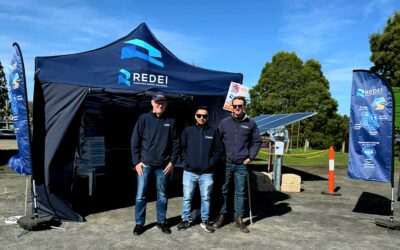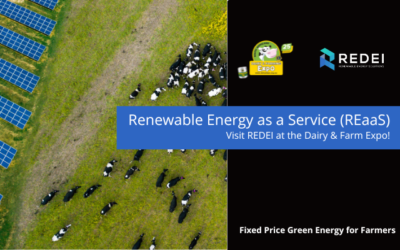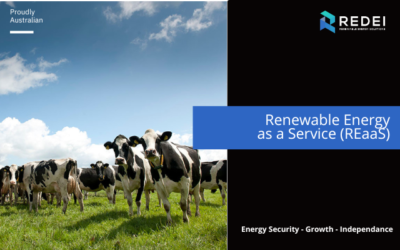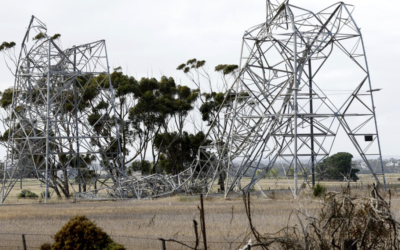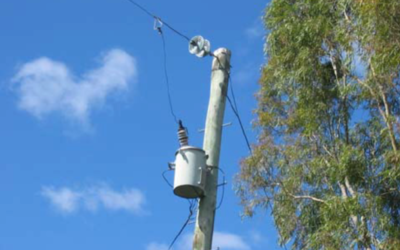7 Ways Solar Microgrids Protect the Environment in Rural Australia

Renewable energy is a crucial tool in the fight against climate change, but its benefits extend far beyond a reduction in emissions. The transition from fossil fuels to clean energy, especially through decentralised solutions like solar microgrids, is a transformative step that provides both environmental and economic security.
At REDEI, we specialise in deploying these solutions for rural and agricultural communities, recognising that they offer a powerful way to protect Australia’s natural resources and build a more resilient future.
1. Reducing Greenhouse Gas Emissions
The most significant environmental benefit of solar microgrids is their ability to drastically reduce greenhouse gas emissions. Unlike traditional power plants that burn fossil fuels like coal and gas, solar panels generate electricity without releasing carbon dioxide or other pollutants.
By providing a clean, on-site power source for farms and remote communities, our microgrids help reduce reliance on the main grid and diesel powered generators. This localised clean energy generation contributes directly to Australia’s climate targets.
2. Preserving Natural Resources
The shift to solar microgrids helps preserve valuable natural resources. Fossil fuel extraction and processing deplete finite resources and often require vast amounts of water for cooling.
Solar microgrids, on the other hand, rely on sunlight, a resource that is abundant and inexhaustible. Utilising battery storage in our microgrid solutions enhances the usability of solar panels by storing the energy generated and enabling farms to use that energy when the sun is not available.
3. Protecting Wildlife and Ecosystems
Fossil fuel operations can pose significant threats to local wildlife and ecosystems through habitat destruction, oil spills, and pollution. REDEI’s solar microgrids are designed to minimise this impact. Our systems can be strategically installed on existing rooftops or on land that can be used for dual purposes, such as agrovoltaics, where land is used for both food production and energy generation. This approach avoids the need for new land clearing, thereby protecting native flora and fauna.
4. Mitigating Air and Water Pollution
The combustion of fossil fuels is a major contributor to air pollutants that can cause respiratory diseases. By providing a clean energy source, solar microgrids improve air quality in regional communities. Additionally, they help mitigate water pollution by eliminating the risk of spills and runoff associated with fossil fuel extraction and transport. Cleaner air and water directly lead to healthier communities.
5. Promoting Sustainable Development
Renewable energy is the foundation of sustainable development. For remote Australian farms and communities, solar microgrids offer a pathway to self-sufficiency and economic empowerment. These systems provide a consistent and reliable power supply, enabling businesses to grow and thrive without being constrained by an unreliable grid. This localised energy independence creates a more resilient economic environment, ensuring long-term growth and stability for regional communities.
6. Reducing Dependence on Fossil Fuels
Relying on imported fuels and a centralized grid exposes communities to volatile prices and supply chain vulnerabilities. By generating their own power, regional communities can achieve greater energy independence. Our solar microgrids allow farmers to hedge against financial pressures by locking in predictable, lower energy costs, building resilience against future energy price hikes and market instability.
7. Contributing to Climate Change Mitigation
Ultimately, the deployment of solar microgrids is a tangible way to mitigate climate change.
As highlighted by the Intergovernmental Panel on Climate Change (IPCC), rapid and significant reductions in emissions are required to limit global warming. Solar microgrids are a scalable and readily deployable solution that allows remote and fringe-of-grid communities to make a direct contribution to this global effort, proving that even small, localised projects can have a collective and powerful impact.
To learn more about how REDEI is working with Australian farmers to revolutionise their energy management.
REDEI Renewable Energy Solutions
Energy where and when you need it!
#RenewableEnergy #SolarMicrogrids #CleanEnergyFuture #SustainableFarming #ClimateAction #REDEI #AgTech #FarmEnergy #RuralAustralia #EnergyIndependence
View by Category
Filter by Tag
Recent Articles
- REDEI Shines at the National Renewables in Agriculture Conference
- 7 Ways Solar Microgrids Protect the Environment in Rural Australia
- Powering a Productive Future: How REDEI Supports Australian Agriculture
- Revolutionising Farm Energy Management: REDEI’s Renewable Energy as a Service featured at the Dairy & Farming Expo
- Discover REDEI’s Renewable Energy as a Service at the Dairy & Farming Expo!


